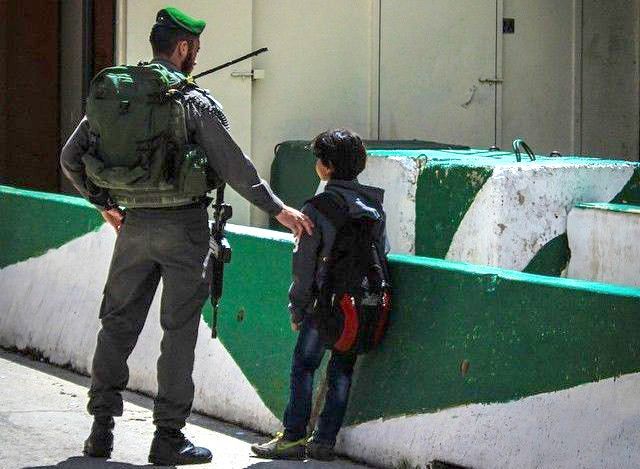Supreme Court orders state to explain cutting of social benefits due to stone-throwing: 'No apparent equality' between Palestinian and Jewish minors
Adalah – The Legal Center for Arab Minority Rights in Israel succeeded on 25 January 2017 to convince the Israeli Supreme Court to rule in a case challenging the state's cutting of social benefits to Palestinian families whose children have been imprisoned for throwing stones.
The Israeli Supreme Court issued an order nisi in response to a petition filed by Adalah, Hamoked: Center for the Defence of the Individual, Addameer – Prisoner Support and Human Rights Association, and Defense for Children International-Palestine demanding that the Israeli authorities cancel an amendment to the Criminal Law that denies child allowances and other benefits to Palestinian families whose minor children (under age 18) are convicted and incarcerated in Israeli prisons for stone throwing and crimes that are categorized as security offenses with "nationalist motivations".
Under the new law, passed in November 2015, the parents of these children, most of whom are East Jerusalem residents, are no longer able to receive child allowances, supplementary employment payments, or alimony payments while their children are in prison. Most of these cases involve stone-throwing, a practice commonly used by Palestinian youth during protests.
The Supreme Court found that the human rights organizations raised substantial questions of law in their petition, and ordered the state to explain, within 45 days, why the withholding of social welfare benefits from Palestinian families in such cases is not discriminatory.
One penal code for Palestinian Arab kids, another for Israeli Jewish kids
"The automatic suspension of social welfare payments from parents whose children threw stones is a measure of revenge," Adalah Attorney Sawsan Zaher stated after the Supreme Court hearing.
"We argued that the amendment contradicts basic substantive principles of criminal law which prohibit arbitrary and disproportionate punishment and obliges fairness and due process through an individual examination of each case. The discriminatory result of revoking the welfare payments of Palestinian children who have thrown stones – while simultaneously maintaining welfare payments to [the families of Israeli Jewish] children who have committed much more serious crimes such as murder, rape, and drug trafficking – is the establishment of one penal code for Arab children and another penal code for Jewish children."
"In addition, the automatic revocation of social security allowances is used in order to exact revenge and punish minors via their parents and this is in direct contradiction of the intended purpose of social security law."
The Supreme Court issued an order nisi or an "order to show" cause, following the hearing. The Supreme Court justices ruled that: "There is no apparent equality between the minors we are discussing here, for example, and minors under 'regular' criminal law, and herein lies the claim of discrimination. Other issues raised in this hearing must also be considered, including the blending of the realm of criminal [law] and of welfare [law], and how to appropriately combat the phenomenon of stone throwers."
The petition was argued before Supreme Court Deputy President Elyakim Rubinstein, and Justices Anat Baron and Uzi Fogelman.
Case Citation: HCJ 3390/16, Adalah et al v. The Knesset
READ: Adalah's joint petition [Hebrew]
READ: Israeli Supreme Court decision [Hebrew]
(Photo courtesy of CPT Palestine)













